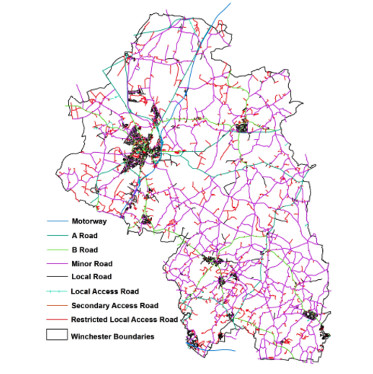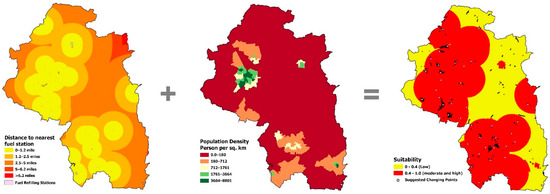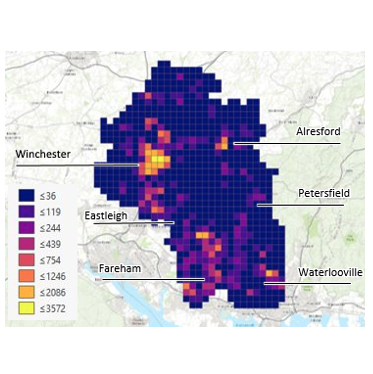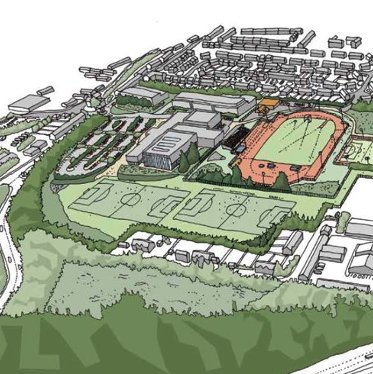Winchester City Council (WCC) has an ambitious aspiration for the Winchester District (covers approximately 250 square miles) to become carbon neutral by 2030. This will necessitate an understanding of various options that could provide a pathway to such a goal. The Energy and Climate Change Division will be undertaking a number of studies to support the aspirations of WCC through 3 key work packages.

Mapping of electric vehicle (EV) charging points and network resilience
In response to roll out of EVs, ECCD will undertake a feasibility of the needed infrastructure for citywide optimisation of the required charging points, mapping out idealised charging points across the city through a geographical information system and studying the resilience of the low voltage electrical network.


Listed / non-listed building retrofit to high energy efficiency standards
Winchester is a historic city with a number of listed buildings. Domestic gas and electricity usage accounts for nearly a quarter of the District’s carbon emissions with currently ~50,000 households of mixed building stock. The research will investigate a representative sample of such building stock that have poor energy efficiency rating and provide options to enhance these into high-energy efficiency standards, quantifying the cost of retrofit and the achievable energy savings.

Low carbon energy hub for the District
WCC wishes to explore the potential for creating a low carbon energy hub, with solar power and battery installations, and the potential for electrifying part of its sub contracted fleet, using a private wire network to supply Council assets and operations in this region. Where a feasibility study will be conducted to identify options for such a hub understanding the relevant parts of the fleet that can be electrified and options for PV and charging points around the hub.
